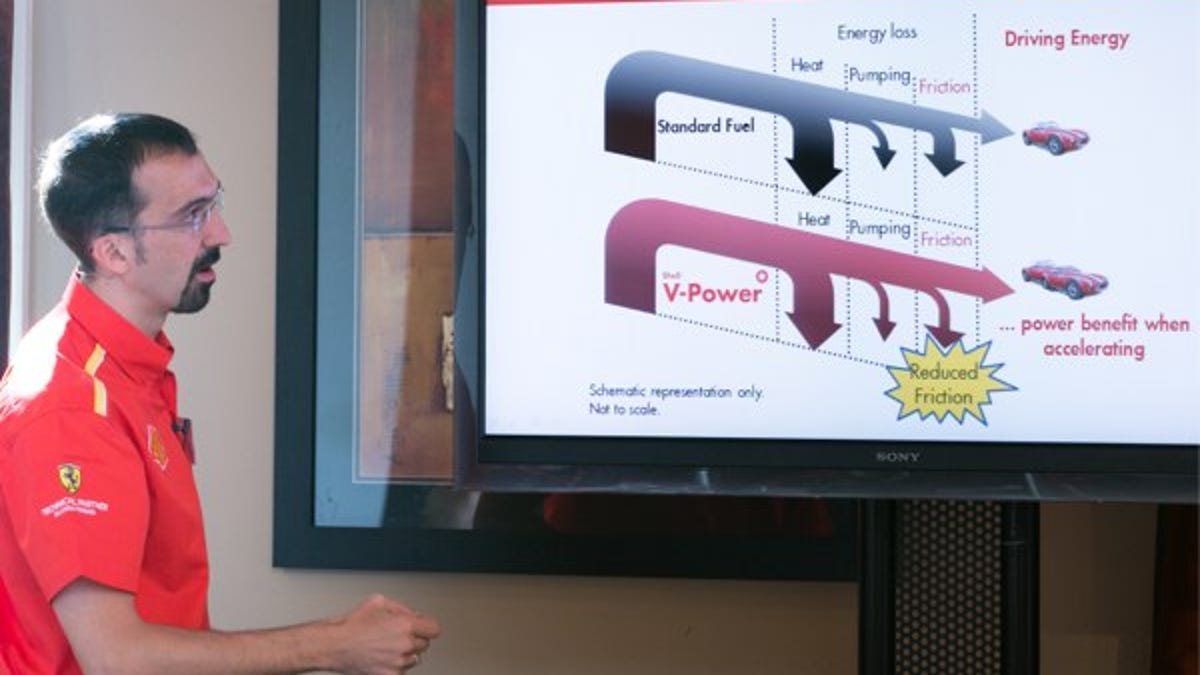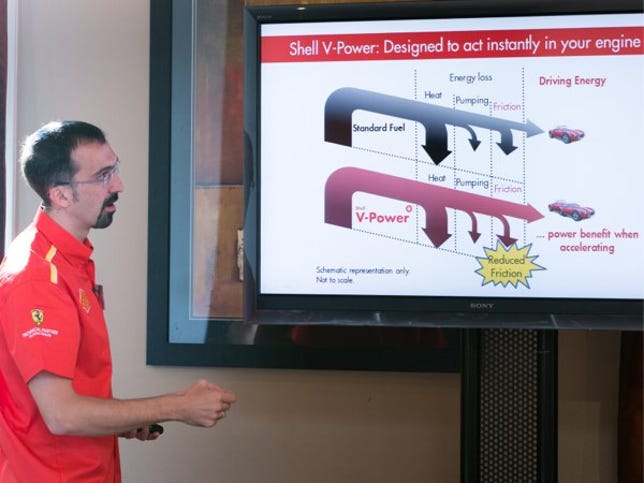
THE STATESMAN EXPLAINER: What can Shell V-Power actually do for your car?
- Published By Jane Njeri For The Statesman Digital
- 1 year ago
Is it worth buying the high-end fuel for your car? Do you need to buy it all the time, or does now and then help too? We got a few answers from Shell.

Is it worth buying the high-end fuel for your car? Do you need to buy it all the time, or does now and then help too? CNET Australia gets a few thoughts from a Shell fuel technology scientist.

The big fuel companies love the idea of us using their premium, high-octane fuels. But what are the real benefits? For 5-10 cents per litre, more money at the pump, is that extra AU$5 per tank going to deliver any real benefits when you're out there on the road? CNET Australia recently met with Shell's Dr Alex Cantlay, senior scientist in Shell's Fuels Technology Group, to talk V-Power and its benefits.
Shell is proud of its development relationship with Scuderia Ferrari. The partnership runs back to the early days of Formula One racing, and for Shell, it means Ferrari is its key testing partner for fuel formulations and oils.
"Shell V-Power is actually 99 per cent the same as the fuel compounds used by the Ferrari F1 team," explained Dr Cantlay. The fuels are so close now you could get an F1 car to run on V-Power, or use F1 fuel in a street car. But that still doesn't explain what such fuel can do for your average car on the road.
Dr Cantlay outlined a couple of key benefits in the use of V-Power over your more standard fare. Top of the list is Friction Modification Technology, which has been increased by 25 per cent in the latest formulation. When it comes to natural loss of power to heat and friction before you get your final power output, the Scottish Dr Cantlay said, "You cannot change the laws of physics," without a wink or a nod to suggest he meant to play off the great words of a certain Star Trek engineer. In essence, this technology reduces power loss as critical engine components rub against each other, increasing the final power output to drive the car.
Secondly, V-Power contains cleaning and protective elements that both prevent the build up of carbon deposits in the intake valves and fuel injectors while cleaning any deposits that already exist. It also acts to prevent corrosion.
The Shell pitch is for users to stick with V-Power over the long term for extended benefits in your engine. But for the vast majority of drivers, this is never going to be a consideration. So what could be some benefits of more casual usage?
The friction modifiers are a fast acting enhancement, essentially improving performance while V-Power fuel is in the engine. This also means the benefits disappear just as quickly if you switch back to a standard fuel.
The cleaning technology, on the other hand, is a longer-term benefit. Dr Cantlay pointed to Shell testing that suggested this is effective in improving performance in engines that have been using standard fuels for long periods of time.
Over a period of months of use, Shell V-Power can remove substantial amounts of build up. Once this cleaning has had some months to improve engine cleanliness, there would be ongoing benefits, even if you were to return to standard fuels after that time.
One theory we came away with was to use a fuel like Shell V-Power in the months leading up to a driving holiday or any extended road trip. If you're going to really hit the road and you want your car to perform at its peak, the cleaning benefits can have some time to work their magic before the trip.
There are so many variables at play, of course, that pinning down any direct percentage value in performance or power improvements is impossible. So all we have is the feature outlines of the fuel as given by Shell and a personal "feel" for whether anything was different on the road.
To that end, this little guinea pig is putting the experience to the test by using only Shell V-Power fuel in my own 2005 Honda Civic sedan. Since late October and through to the New Year, I'll be sticking with V-Power and taking a number of extended drives between Sydney, the Southern Highlands and the Hunter Valley across that time. I'll report back in January on whether there have been any perceivable benefits to using such a fuel in what is a beloved, but stock standard, small family car.
Share on
Tags
SHARE YOUR COMMENT
MORE STORIES FOR YOU
Trending Stories
DJ Mo’s former illicit lo...
- Published By Jane
- January 15, 2024
Mapenzi! Zari and Tanasha...
- Published By Jane
- October 24, 2023
Zuchu Speaks on Diamond P...
- Published By Jane
- October 12, 2023
Hio Ni Upumbavu Wasituche...
- Published By Jane
- November 8, 2023
RECOMMENDED FOR YOU
Your Lungs Hold Secrets A...
- Published By The
- September 11, 2025
Better Sleep?: See The Li...
- Published By The
- September 11, 2025
What to Know About iPhone...
- Published By The
- September 11, 2025
From Teacher to Mwalimu N...
- Published By The
- September 11, 2025
Latest Stories
Champions League: Arsenal...
- Published By The
- October 2, 2025
"Sura Kama Ya Kiatu": Bet...
- Published By The
- October 2, 2025
The Reason Diana Marua is...
- Published By The
- October 2, 2025
Shock as Audit Reveals Mi...
- Published By The
- October 2, 2025



